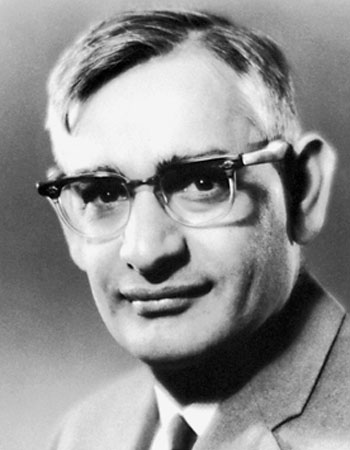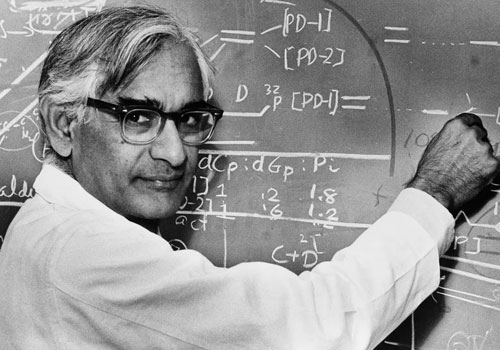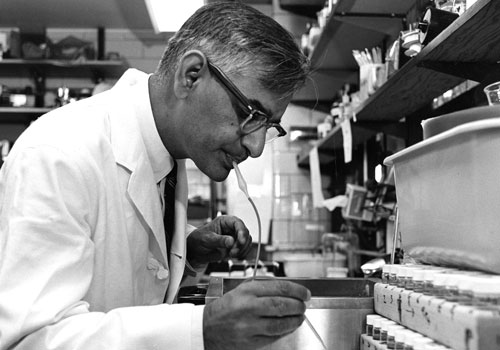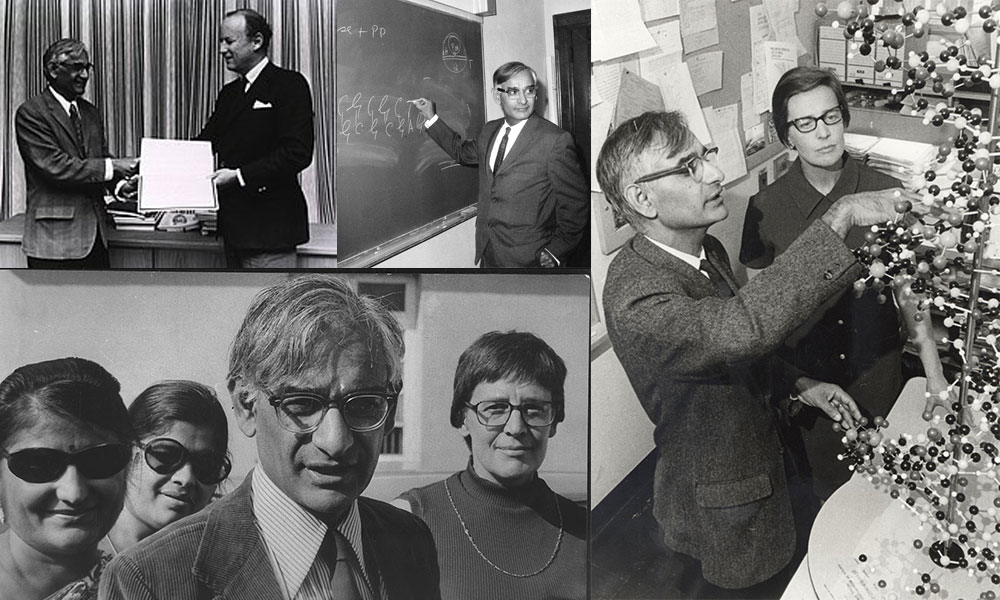Har Gobind Khorana (हरगोविंद खुराना)

Har Gobind Khorana was an Indian-American Nobel Prize winner. His area of study was biochemistry. He is also known as the father of synthetic genes. He was known for cracking the DNA code.
Born in poverty in the Punjab Province of British India, in Raipur, Har Govind was the youngest of his siblings. He was born on January 9, 1922. His father, Ganpat Rai Khorana, was a patwari, and his mother was Krishna Devi Khorana. His family was the only literate family in their whole village. Har Govind loved to study since he was a child, and seeing his interest, his father enrolled him in the DAV (Dayanand Anglo-Vedic School) in Multan (now in Pakistan). He then attended the University of Punjab (now in Lahore, Pakistan) to complete his B.Sc. and M.Sc. He won a scholarship from the Indian government and was able to complete his PHD in Organic Chemistry from the University of Liverpool in Britain. He then opted for post-doctoral work and worked as an unpaid intern for over a year on alkaloid chemistry. His family moved to British Columbia in 1952, where he married Esther Elizabeth Sibler. He had three children: Julia Elizabeth, Emily Anne, and Dave Roy.


When he moved to British Columbia in 1952, he was able to work on his research on "Nucleic Acids and the Synthesis of Many Important Biomolecules." This was the turning point in his life. His research gave a new direction to the field of organic chemistry. In 1960, he became the co-director of the Institute of Enzyme Research at the University of Wisconsin in America; he also became a professor in 1962. He became a US citizen in 1966. He became an MIT Professor of Biology and Chemistry in 1970. He retired from MIT in 2007.
He is mainly known for being the first to recognise the role of nucleotides in protein synthesis. He is known as the father of the first synthetic gene, as in 1970 he was the first to chemically synthesise oligonucleotides. He also completed the total synthesis of functional genes outside of a living organism in 1972. He delivered his Nobel Lecture along with Marshall W. Nirenberg and Robert W. Holley in 1962. His work was recognised globally, and scientists to this day refer to his research. His contribution to the field of chemical biology is astounding and incomparable.

He has won several prizes for his work, including the Nobel Prize in Medicine (1968), the Gairdner Foundation International Award (1980), the Louisa Gross Horwitz Prize, ForMemRS (1978), the Albert Lasker Award for Basic Medical Research, the Padma Vibhushan, and the Willard Gibbs Award (1974). Khorana died on November 9, 2011. He will forever remain alive in our hearts.
Leave Your Suggestion